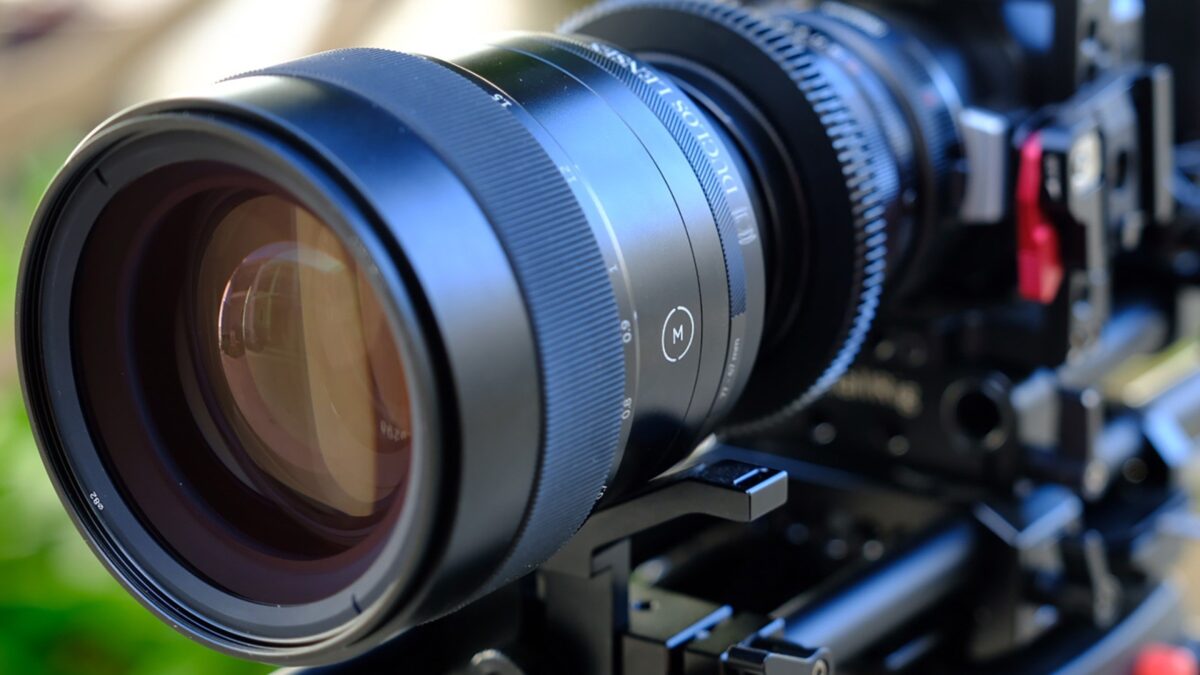
This isn’t the first anamorphic glass from Moment, but it’s the first you can use on your camera.
In the early 2000s, shooting anamorphic would have cost you an arm and a leg. A few years later, you’d be duck-taping anamorphic projection lenses to your rig. Was it effective and affordable? Sometimes, but it was sketchy.
Fast forward to 2023, and you can get a real anamorphic lens for under $1000 from the likes of Sirui and Venus Optics. If you had told me that back in the day, I’d have thought I was listening to a stand-up routine.
Before this anamorphic renaissance, dedicated anamorphic adapters (not the projection lenses) were a solid middle ground. While they did come with their limitations, the compositions that filmmakers could achieve on a budget were amazing.
Unfortunately, over time, they’ve somewhat fallen out of fashion even though companies like Great Joy and Sirui have found a use for them.
But now, a quiet player in the smartphone anamorphic space has made a move to play in the big leagues. Moment, a gang of hip content creators who run a camera and camera accessories marketplace, has taken all its experience from iPhone anamorphic adapters and made the Moment 1.33x Anamorphic Adapter for full-size lenses.
Is it good? Is it a few years too late? And why would you even get one?
I bought my own to find out.
The Moment 1.33x Anamorphic Adapter
Funded through a Kickstarter campaign, Moment’s first full-size anamorphic adapter felt like a blast from the past. I had used the SLR Magic Anamorphot-40 1.33x back in 2016, and the whole concept was all too familiar.
But I was intrigued; maybe I was swayed by the cool marketing or the beautiful images the Moment team had captured with the pre-production model—in either case, I purchased one
In early February, it was at my door. The packaging for the adapter was solid, with padding on the inside to protect the lens. There are some dividers that held three separate step-up rings to match your chosen lens.
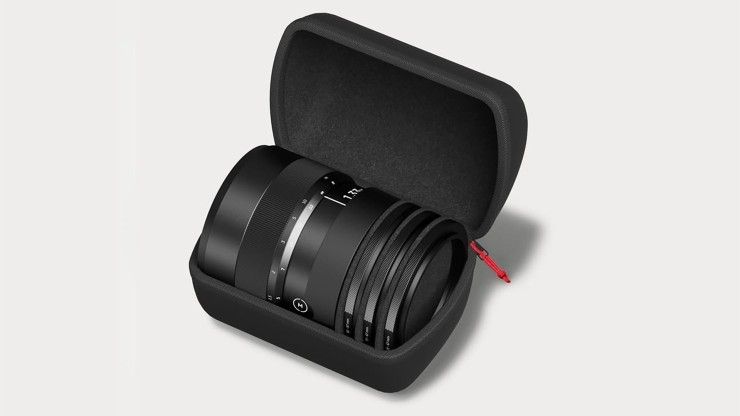
The first thing that surprised me was the weight. This thing was heavy, coming in at 880g (which is just under 2lb). For comparison, the Anamorphot-40 weighs about half a pound.
Weight aside, the build quality was impressive, with an all-metal design and a nice rubber-like focus ring that had 180 degrees of rotation. Unlike the adapters of yesteryear, Moment’s anamorphic adapter utilizes only one focus ring. While SLR Magic has the same feature, Moment built one in right from the start, which offers a close focus distance of 0.7 meters (27 inches).
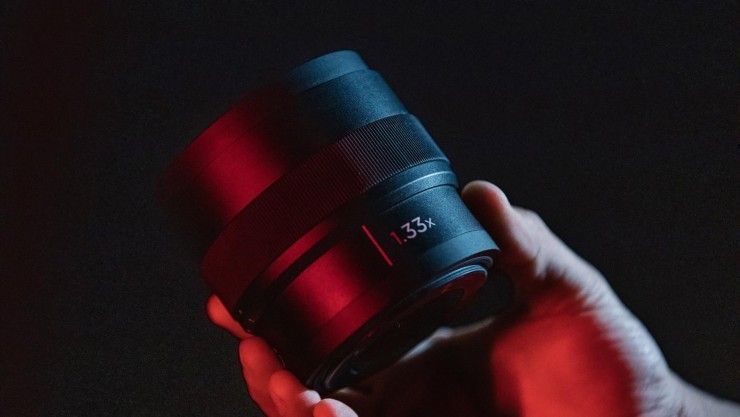
The front filter thread is 82mm, and while it’s a bit larger than my usual 77mm. With the massive piece of glass it has up front, that makes sense. The filter threads on the back were only 67mm, and with the included step-up rings, I was able to get the adapter onto my Cine-Modded Zeiss ZF.2 primes without any issues.
Here is where I was impressed. Moment’s anamorphic adapter comes with a special locking rotation mechanism. This allowed me to push one button and align my lens in a matter of seconds.
Then, it would lock into place and stay rock solid throughout my time shooting with it. By comparison, it took me a few minutes to get the Anamorphot-40 properly aligned, and even then, the alignment was iffy at best.
So how was it to use during my test?
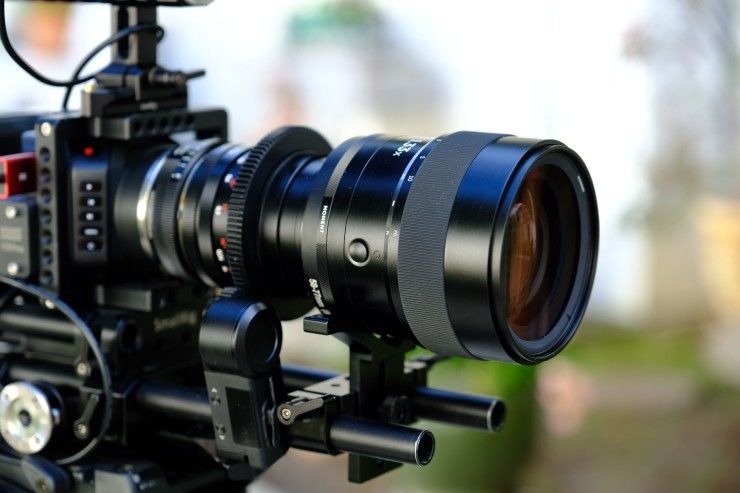
An Unwieldy Yet Beautiful Beast
Honestly, it was a dream, even with the weight.
Initially, I put this on my Blackmagic Micro Cinema Camera rig that had lens support. Getting it set up and aligned took no time at all, and made me consider using this on a fast-paced project. With how rear-heavy my rig is, the weight at the front balanced everything perfectly, and I could trust the alignment without ever looking at the image.
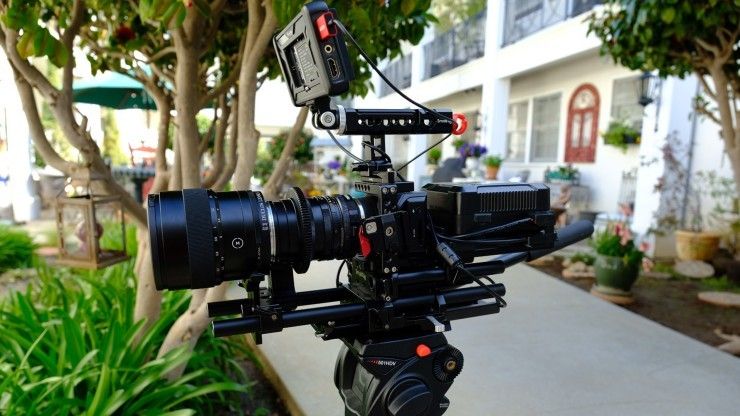
The image was amazing, even though a bit subtle. Built with six glass elements altogether and a Gold Flare coating, the lens produces understated anamorphic characteristics with its 1.33x squeeze factor while allowing me to use the full resolution of my sensor. Sure, I could just crop the top and bottom in post-production, but it just doesn’t look the same.
I even brought the anamorphic adapter on a trip to use on my Fujifilm X-H1, a Metabones Speedbooster, and my 135mm Zeiss ZF.2. Unfortunately, the 50mm had some vignetting, and I forgot to bring the 85mm.

This is where things became unwieldy.
The whole setup was heavy enough to give me a workout, and I was worried about how much stress the adapter was putting on my lens. While I loved the photos I took, using lens support with this adapter is a must at any focal length, even with well-built lenses.
However, I did eventually use the 85mm, which was a perfect sweet spot with Fuji’s APS-C sensor.
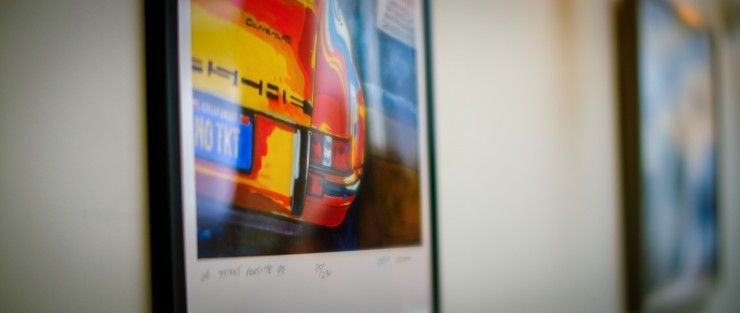
With that in mind, going handheld with this setup requires some forethought. You’ll need a taking lens that is light enough to reduce your overall weight but also telephoto enough to not vignette. Here’s a chart from Moment to give you an idea of what focal ranges you can use.
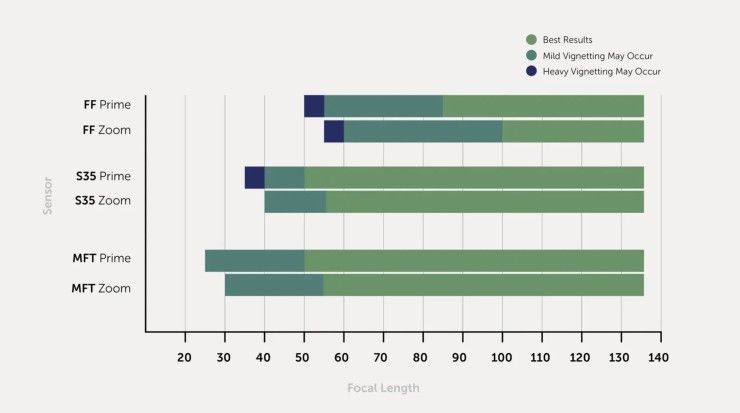
The Good, the Bad, and the Ugly
I’ve already mentioned the weight. While that’s definitely a con in some books, I’m finding it to be more useful than I thought I would. While it works for my rig, not everyone will be able to deal with the heft, especially on those long shooting days.
Another thing that stuck out to me is the rotation mechanism that aligns the lens. Right out of the box, it was way too stiff. Trying to align the adapter for the first time was a struggle, as the internal lubrication felt slightly stiff. However, after a few lens swaps, it started to loosen up.
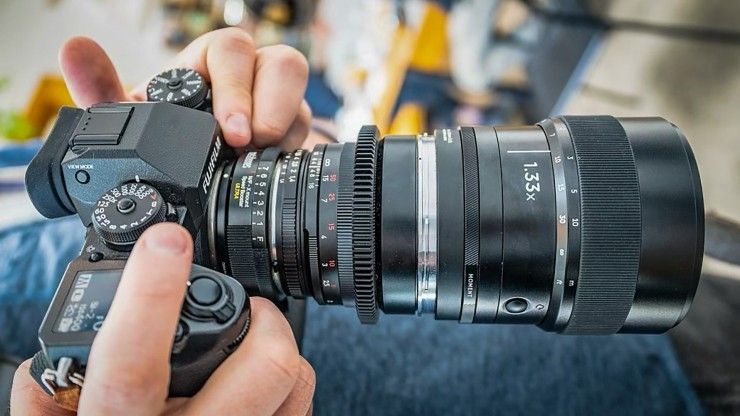
Beyond that, there were no glaring issues. Once I set the focus on my taking lens just a hair off the infinity, focusing the adapter was a breeze and tack sharp. Having said that, I would have loved to see some focus gears and a screw mount on the bottom for lens support.
While I see myself putting on my personal focus gears and using a manual follow focus, I’m not brave enough to use a motorized wireless unit. The fit of the adapter has been rock solid so far, but I don’t trust it with the torque of my wireless follow focus. Having this adapter unscrew on me during a focus pull is the last thing I want.
Why I Chose the Moment Anamorphic Adapter
The past month I’ve spent with this adapter has been a unique experience. Since I shoot on a 1920 x 1080 Super 16 sensor, my goal with my compositions has been to get a wide-screen image without sacrificing my sensor resolution.
I had tried the Sirui anamorphics but found that the quality control was a bit all over the place. Some lenses would fit on one MFT camera but not the other, even though they had the same mount. What if I wanted to shoot on my Fujifilm camera with these lenses? Well, that just wasn’t in the cards.
The Moment 1.33x Anamorphic Adapter was attractive to me because it gave me what I wanted and then some. I got my widescreen image without compromising my sensor resolution, and I’m able to use it with any of my vintage lenses on any camera I choose. All I need is the right adapter. Years from now, I will still pull this out of my bag and use it. For the price I paid, that was worth it.
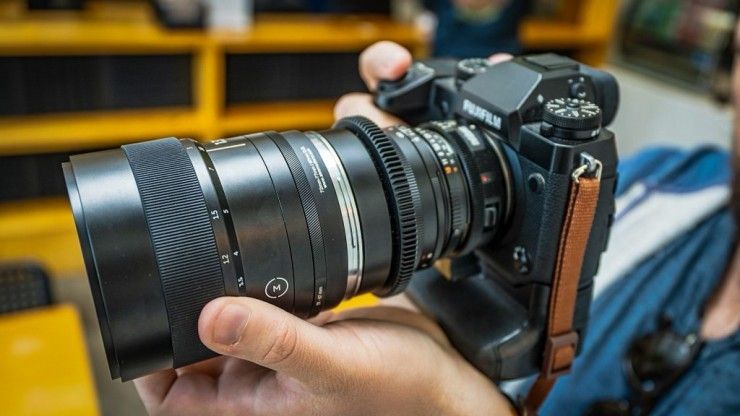
Is the Moment Anamorphic Adapter Too Late?
So, is it a little too late to release something like this? Well, it’s definitely a unique piece of gear, but I think it’s about time we got a refined adapter that’s well-built and easy to use. So, no, I think it’s just right on time.
I’m finding myself reaching for this adapter more often than I thought I would, even with the weight. It’s super easy and fast to set up, and I get to keep all the character of my vintage Nikon glass. Overall, I’m happy I gave the Moment anamorphic adapter a chance.
Is It Worth It for You?
If you’re comfortable staying in a single mount and want a dedicated anamorphic lens, this adapter may not be for you.
However, if you want a real anamorphic image with subtle anamorphic characteristics that you can use on any lens in your kit (and on any camera), then this adapter is a strong contender.
Sure, it’s not as cheap as other offerings on the market, but the locking feature alone makes up for it (at least to me). I know this adapter will stay in my kit for the foreseeable future.
What do you think? Would you want this adapter in your kit? Let us know in the comments!














